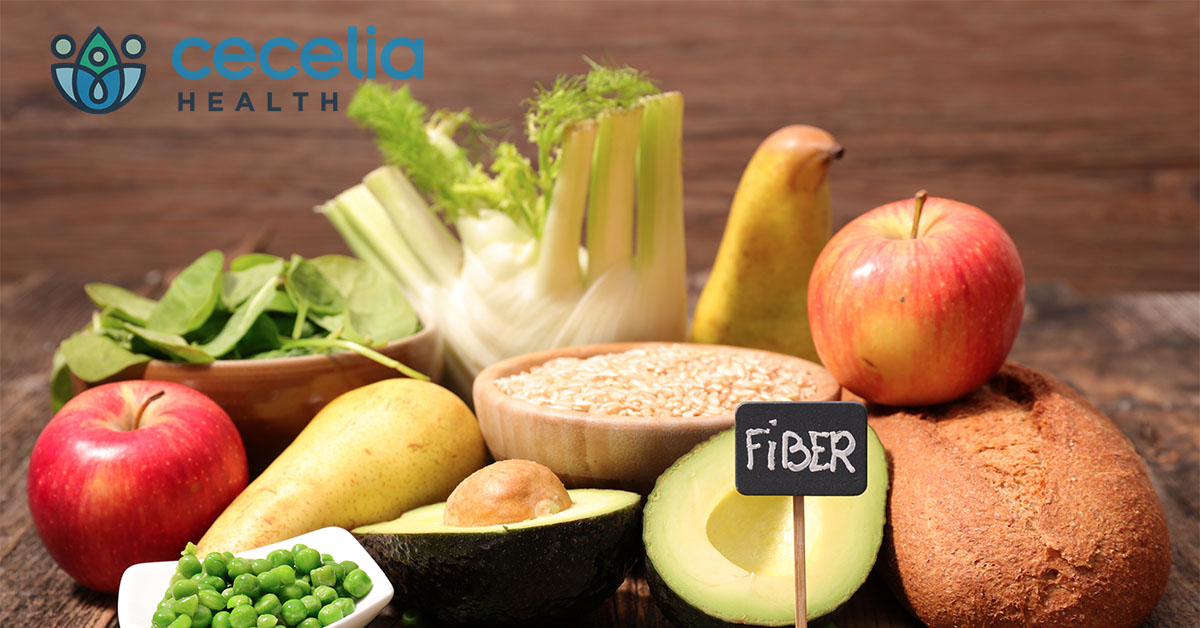The benefits of eating a diet high in fiber and consuming adequate water have been studied and discussed for many years. As experts continue to learn more through scientific research, we find stronger evidence that leads back to the importance of including both daily staples in the diet.
With a focus on fiber, Dr. Reynolds analyzed the majority of all the best studies published to date with results published in the Lancet in 2019. Link to article referenced at the end. What is clear about the effects on dietary fiber on human health?
Those that consume more dietary fiber had many positive health characteristics:
- longer life
- less likely to have a heart attack or die of heart disease
- less likely to have a stroke
- less likely to die from cancer or be diagnosed with colon, esophageal, or breast cancer
- less likely to be diagnosed with type 2 diabetes
- lost weight when part of a trial where they increased fiber intake
- reduced blood pressure during clinical trials
- lowered cholesterol during clinical trials
The National Academy of Medicine defines two different types of fiber: 1.) dietary fibers (nondigestible carbohydrates and lignans) that occur naturally in plants, 2.) functional fibers that are extracted from plants or synthetically made and are nondigestible with a beneficial health effect in humans. A mix of all types tend to be beneficial for different reasons. Another way to classify fiber is either as soluble or insoluble. Soluble fiber dissolves in water and is found in foods like chia seeds, blueberries, beans, and lentils and helps lower glucose levels and lower blood cholesterol. Insoluble fiber does not dissolve in water and is found in foods like whole wheat products, quinoa, leafy greens, nuts and seeds, and fruit with edible skin like apples or pears. Insoluble fiber can help prevent constipation and encourage food to move through the digestive system.
Fiber Guidelines
On average, an adult living in the US only gets about 12-16g fiber/day. How much fiber you should eat depends on your sex and how many calories you consume. Typical recommendations suggest getting at least 25-35g fiber each day, with a man aiming for closer to 38g/day. Another guideline is 14 g fiber/1000 calories consumed. Avoid hyper-focus on a particular fiber or type of food and instead focus on eating a wide variety of plant foods like vegetables, fruits, legumes, nuts, and whole grains. When increasing fiber intake, often adding an additional serving or two each week to get your body used to it works best. More importantly, when increasing your fiber intake, it is important to also get adequate water.
Benefit for Diabetes and Pre-Diabetes: According to the Centers for Disease Control and Prevention, many studies have shown that higher amounts of fiber intake cause both lower fasting blood glucose and lower hemoglobin A1c results in those living with type 2 diabetes. For those trying to prevent type 2 diabetes research has illustrated that people who ate the highest amounts of fiber in specific studies had the lowest incidence of getting type 2 diabetes. This is especially helpful information for those with pre-diabetes, those with a family history of type 2 diabetes, or women who were diagnosed with gestational diabetes during pregnancy.
Water Guidelines
We are made up of more than 50% water. We need to drink it regularly to survive and need more than average suggested amounts in certain conditions. A general recommendation for water intake is roughly 1 ounce of water per kilogram of body weight. As an example, a person weighing 140 pounds would need about 64 ounces of water each day. Adequate water intake is needed to carry out many tasks.
- Normalizing blood pressure
- Carrying nutrients and oxygen to your cells
- Aiding digestion
- Cushioning joints
- Regulating body temperature
- Maintaining electrolyte balance
- Preventing constipation
- Flushing bacteria from the bladder
Water intake should be individualized. Water needs increase with perspiration such as with exercise or in hot temperatures. For those with certain health conditions i.e kidney, liver, heart problems, or thyroid disease, or medications that cause water retention (non-steroidal anti-inflammatory drugs, opiate pain medications, and some antidepressants may decrease water needs. It is best to check with your doctor or registered dietitian (R.D.) if you have a condition or take medicine that impacts water requirements.
The U.S. National Academies of Sciences, Engineering, and Medicine determined that the adequate daily fluid intake is about 15.5 cups for men and about 11.5 cups for women. Most of the fluids consumed should be water, however other fluid also counts when looking at adequate fluid intake/day. About twenty percent of your fluid intake comes from food and the rest from drinking fluids. Limiting your intake of coffee, caffeinated beverages or energy drinks can help maintain your fluid level, as caffeine stimulates urine production. Recommendations based on weight take in account these rules. People are well hydrated getting 1 ounce of water for each kilogram of body weight. To convert pounds to kilograms, divide the weight in pounds by 2.2. Hence 140 pounds divided by 2.2 is 63.63 and rounds up to 64 ounces.
Fiber and water are vital to our health. Both help prevent disease and keep our body functions in check.
https://www.eatright.org/food/vitamins-and-supplements/nutrient-rich-foods/fiber
https://www.ceceliahealth.com/dietary-fiber-the-unsung-hero-of-a-balanced-diet/
https://www.ncbi.nlm.nih.gov/pmc/articles/PMC6315424/
